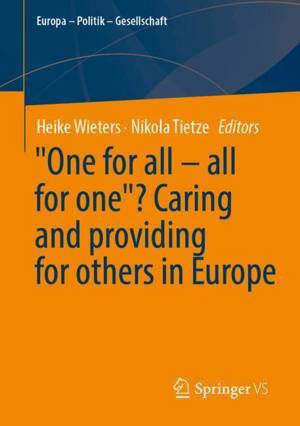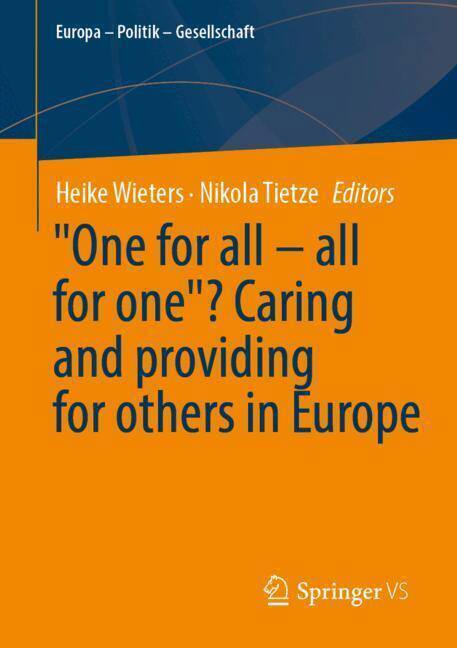
- Afhalen na 1 uur in een winkel met voorraad
- Gratis thuislevering in België vanaf € 30
- Ruim aanbod met 7 miljoen producten
- Afhalen na 1 uur in een winkel met voorraad
- Gratis thuislevering in België vanaf € 30
- Ruim aanbod met 7 miljoen producten
"One for all - all for one"? Caring and providing for others in Europe
Omschrijving
This book focusses on how historical dynamics and specific actors have shaped the diverse outlook and everyday practice of welfare in and across Europe. Based on the concept that narratives about welfare in Europe are intricately interconnected with various practices of caring for oneself and others, the authors take a praxeological approach to analyze specific care activities, the relevant players, and underlying narratives about welfare in Europe in the fields of housing, family provision, social insurance, child care, handling disability, dealing with poverty, and the transition of socialist welfare to the post 1989 world. Welfare is conceptualized as a field of changing relations of co-operation and competition between interest groups (such as labor unions, employers groups, and churches), public government players, and other societal actors (such as social reformers, occupational groups, or NGOs). The volume contributes to the construction of a European multidimensional welfare geography that transcends state institutions and is defined by locally, regionally, nationally, transnationally negotiated and interconnected practices and traditions of caring and providing for others.
Specificaties
Betrokkenen
- Uitgeverij:
Inhoud
- Aantal bladzijden:
- 120
- Taal:
- Engels
- Reeks:
Eigenschappen
- Productcode (EAN):
- 9783031960253
- Uitvoering:
- Paperback
- Afmetingen:
- 148 mm x 210 mm

Alleen bij Standaard Boekhandel
Beoordelingen
We publiceren alleen reviews die voldoen aan de voorwaarden voor reviews. Bekijk onze voorwaarden voor reviews.










